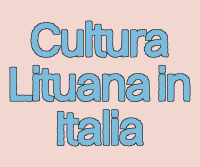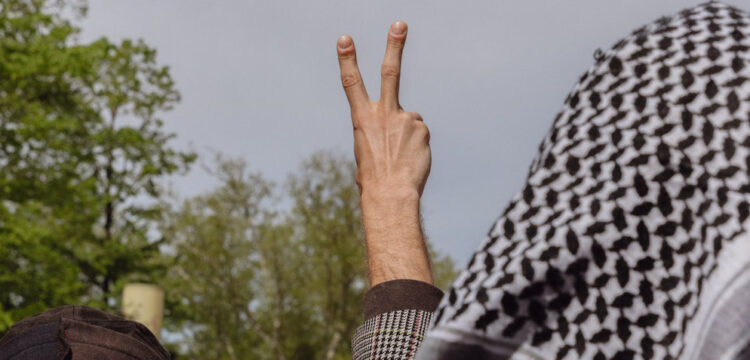Greetings and Kisses from Mediterranean Neo-fascism
How does a fascist climate emerge? What happens just before? And just after? What slowly corrodes the entire horizon?
On June 23, 2025, the French newspaper Libération organized an evening event in Paris on “Public services in danger, culture in resistance” to which Francesca Corona, artistic director of the Festival d’automne, was invited to report on the Italian scenario. The output was a collective text written by Francesca Corona together with artists Daria Deflorian, GIorgina Pi, Martina Ruggeri, Ilenia Caleo, Silvia Calderoni, and Maria Vittoria Tessitore, a 90-year-old extraordinary researcher and former University Professor.
This same letter was published in Libération on Friday July 11, under the title How Meloni’s fascism impacts on culture and on our own lives.
How does a fascist climate emerge? What is going on just before? And soon after? What is it that slowly corrodes the entire horizon? We, as Italian women, watch all this from a situated and embodied point of view: that of feminists who live and work in the world of arts and culture.
Let’s start by talking about ourselves, about how we are. We want to name powerlessness which is spreading everywhere. At times it borders on depression: a feeling of inadequacy, of not being good enough as activists, as artists, as friends.
Fascism is indeed also claustrophobia.
To carry out contemporary creation in Italy, we have always been accustomed to cutting, sewing, mending—doing a lot with very little. In some ways we have always lived in ransacked houses. And yet the present far right politics does indeed make a difference.
While we were discussing among ourselves the subject of this “letter,” we happened to list a number of scenes that had physically affected us.
Details that fuel the fear of the whole. Details from which rises the fright of the whole.
Rome, April 6, 2023. A General Assembly on Culture is promoted by the government. The title: Thinking the Italian Imagination. The word national occurs several times in the slide titles. Speakers: 69. Of these, 65 are men. Attending were associations and journals such as La Verità, Il Timone, Nazione Futura, Cultura Identità, Spirito del Risorgimento, La Voce del Patriota.
One year later, Albania.
First image: a full up ship with about 100 military personnel from either the navy or security forces mobilized to transport only 16 migrants.
The ship is heading to Albania, a former colony of fascist Italy. For us, with our feet dipping in the Mediterranean Sea, full of dead bodies, it is a colonial snapshot.
Second image: a detention center, completely empty. Meloni shouts, “The Albania centers will work, even if I were to sleep there every single night until the end of my term!”
Fortunately, these centers are not yet operational. It is a snapshot of resistance.
On 31 October 2022, a week after taking office, Meloni adopts a decree with the force of law charging any meeting considered dangerous to public order—the so-called anti-rave decree, a direct attack on the right to assemble, gather, and dance.
Unfortunately, this was only the beginning: a new Security Decree has recently been approved, by which repression applies also to dissent and passive resistance, both on the street and in prison.
As we write, workers on strike in Bologna are blocking a few meters of road: they risk up to two years in prison.
August 2024, Milan. A poster on a bus stop: Jan Fabre Festival, subtitled “Love and beauty are the supreme powers,” with six shows scheduled.
Since sentenced in April 2022 to 18 months’ suspended imprisonment and five years’ loss of civil rights, Jan Fabre has increased his presence in Italy, while many European institutions have stopped putting him on schedule.
Perhaps his fee has dropped, and we, in Southern Europe, can now afford him: the discount store of violence.
On 17 June 2025, the Ministry of Culture publishes the results of the three-year call for dance. The picture is shocking: many companies, festivals, production centers and training courses are downgraded or cancelled.
The target is contemporary creation: but innovation, research and multidisciplinarity are expelled as criteria. Art is no longer thought of as a public good, but as entertainment subordinated to a commercial and profit-driven rationale. The effects will be devastating.
As for theatre the results had been easily foreseen when three out of ten members of the Commission had resigned, denouncing evaluations dictated by political affiliations. Meanwhile, what is emerging is a very disturbing landscape with devastating consequences. Here is the comment of a member of Giorgia Meloni’s party on the choices made by the Ministry of Culture, which, among other things, downgrades the Santarcangelo Festival, one of the most important festivals for contemporary creation in Italy: “It is a cultural choice: in recent years, the Santarcangelo Festival has shown an increasingly politicized drift, with performances patently opposing the founding values of our society—la famiglia, la religione, la nazione family, religion, the nation even going so far as to spread messages criticizing the institutions themselves.”
One could say: this is how the neo-fascist right acts.
The difference with the conservative right of yesterday is that today they are driven by a spirit of revenge while aiming at cultural hegemony, occupying all spaces by any means possible.
It is hard to tell at what point the compromise to remain in touch with reality becomes a compromise of integrity. So that we no longer know whether we are practicing camouflage as a form of resistance or are already succumbing to self-censorship.
One could jump up at every word, at every new event. But, at a certain point, we no longer jump up. We get used to the words. We get used to hearing “deportation” and “remigration” in the press reviews.
The question is not only to resist or survive, but also to imagine, dig, invent new and unpredictable spaces for action. Imagining is part of our work, and we know its full political potential.
We need a physical gesture. We need to break the negativity. We must reject the idea that there is no more space and refuse to give in to powerlessness.
The horizon of the end is what the far-right is trying to impose on our imagination, on all of us. What could still exist out there, ahead of us, for our lives?
We keep imagining the future. With greetings and kisses from Mediterranean neo-fascism.
Francesca Corona, Daria Deflorian, Giorgina Pi, Martina Ruggeri, Ilenia Caleo, Silvia Calderoni, Maria Vittoria Tessitore



